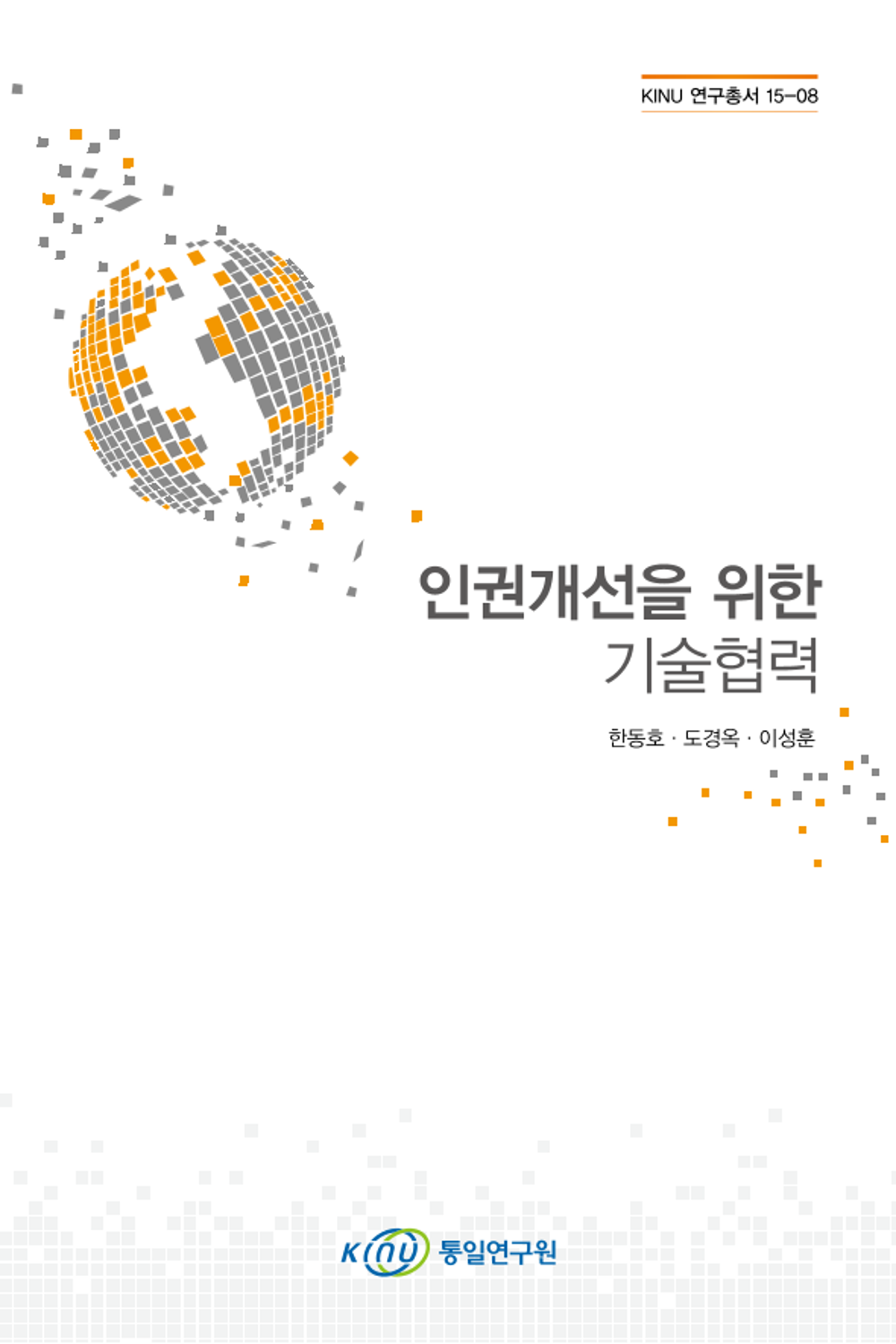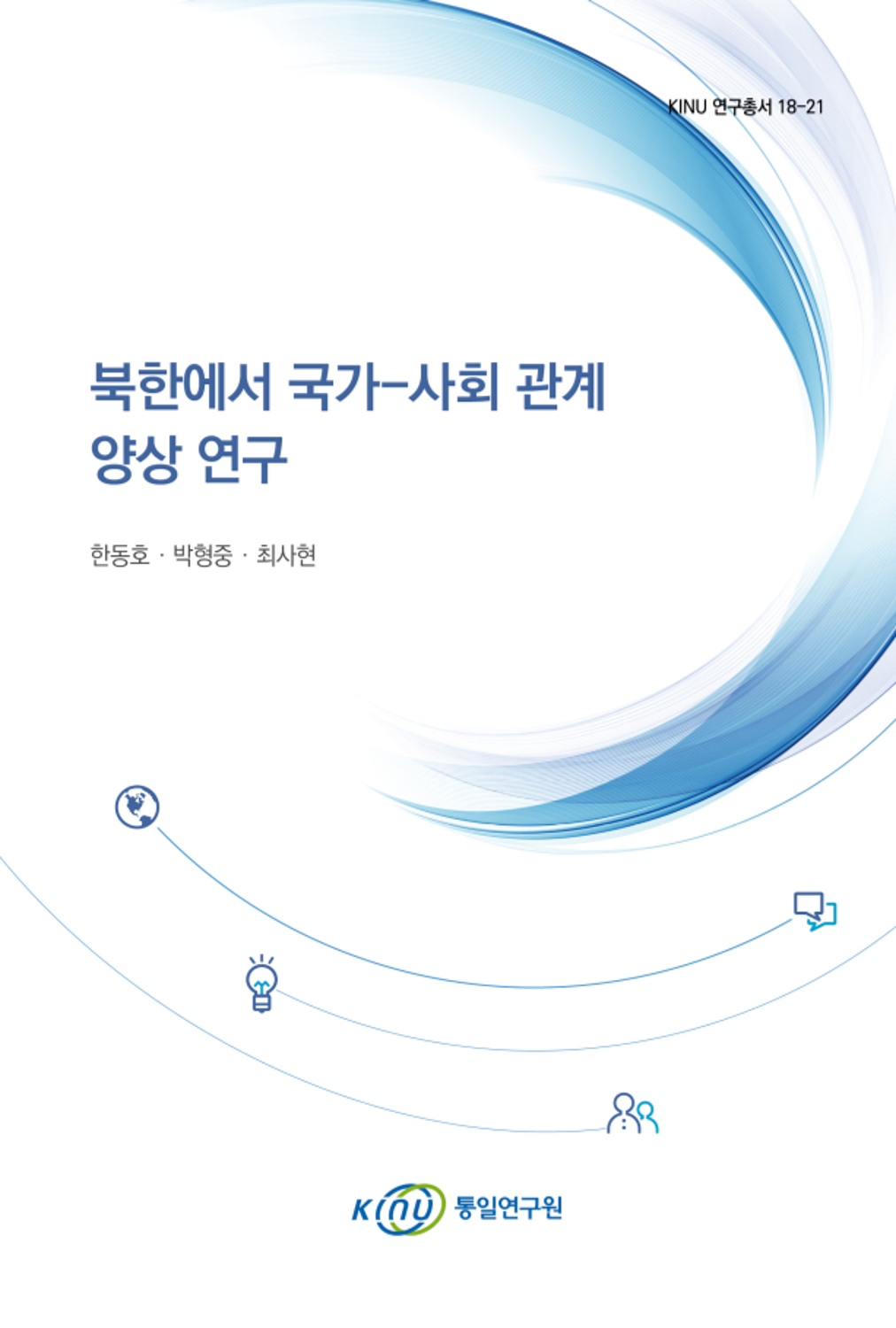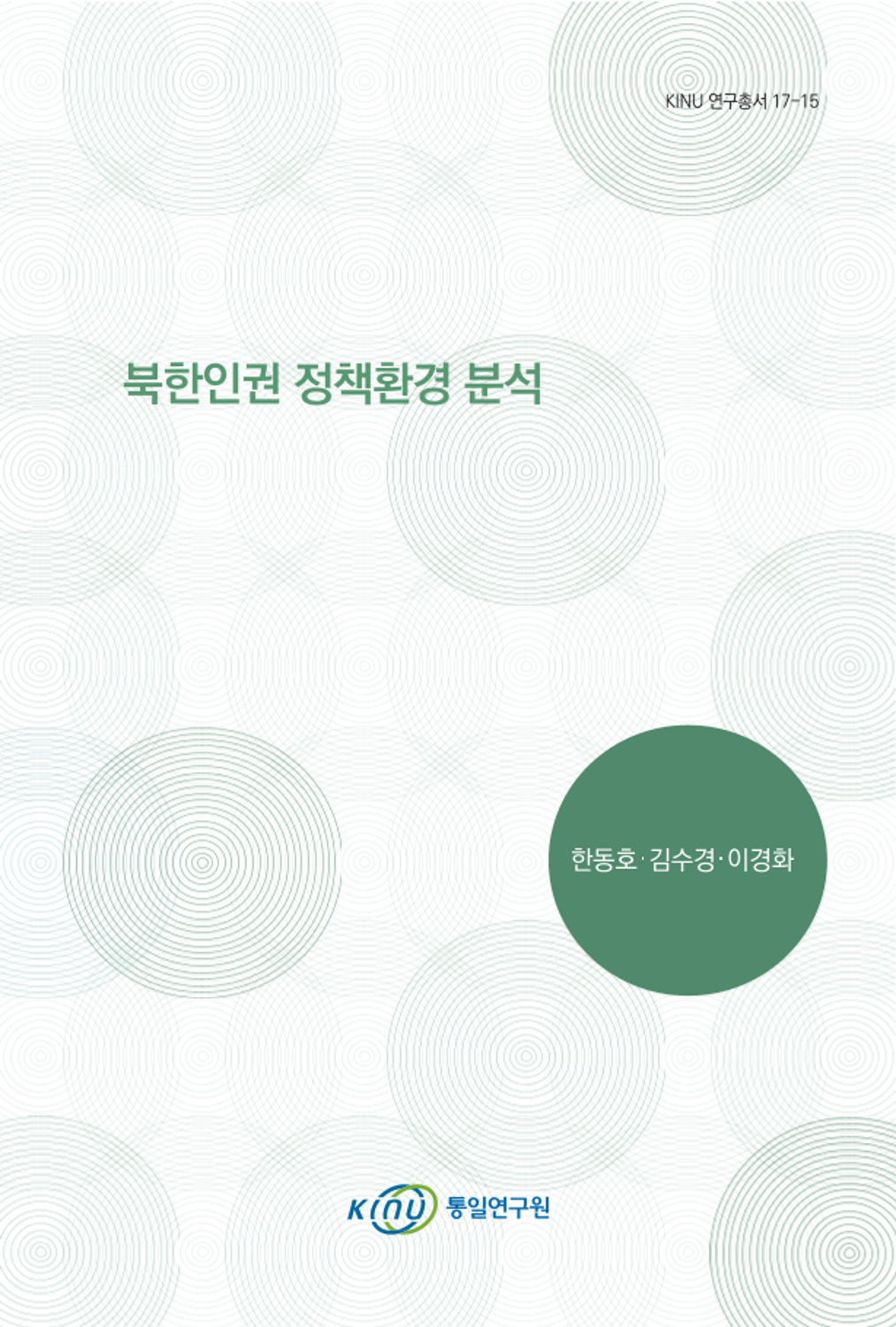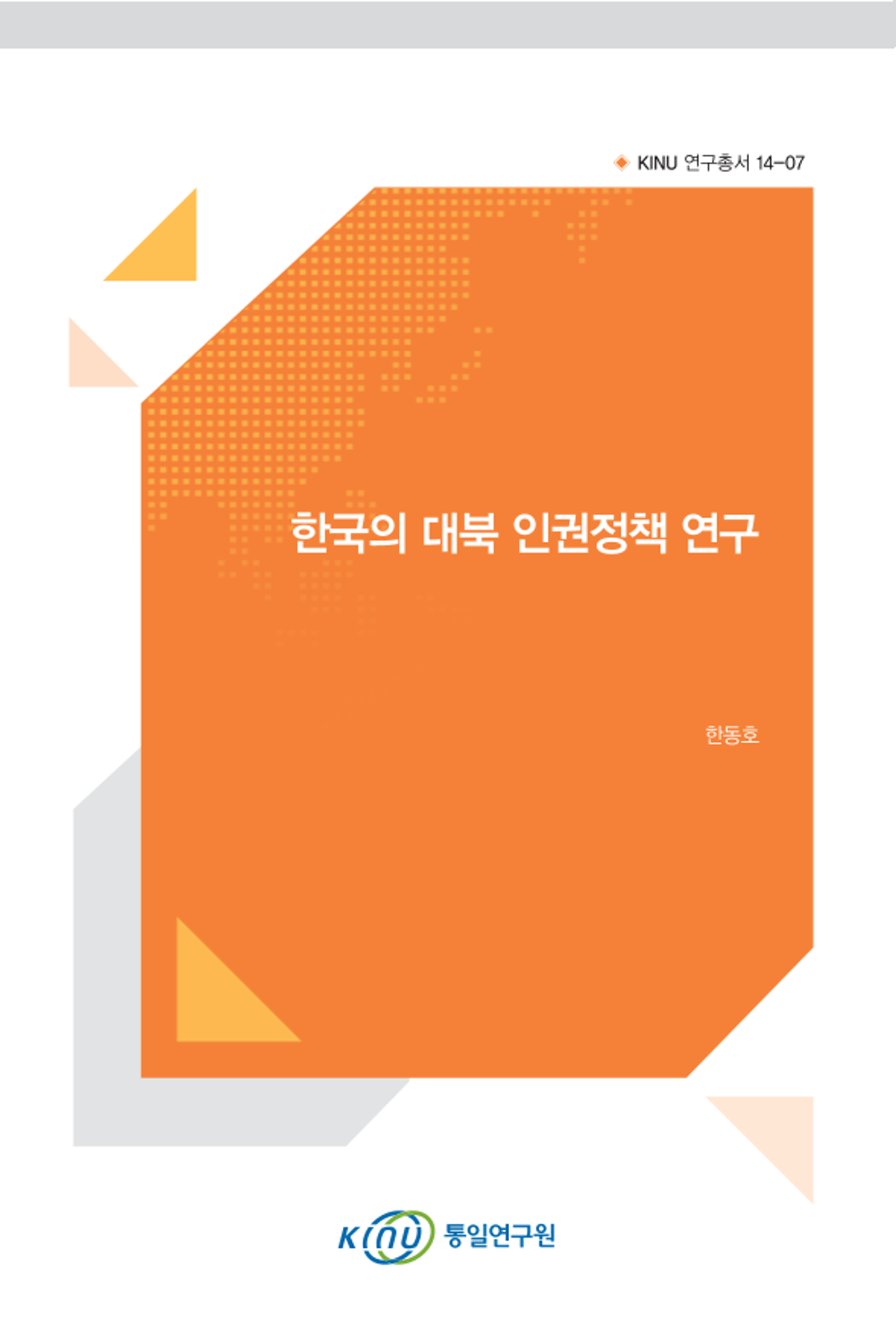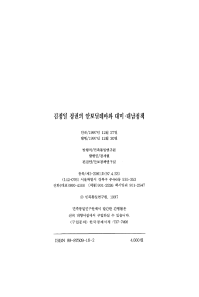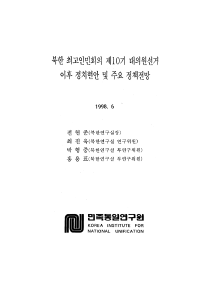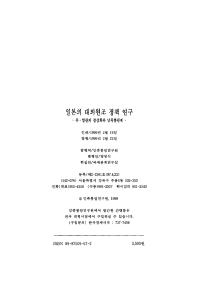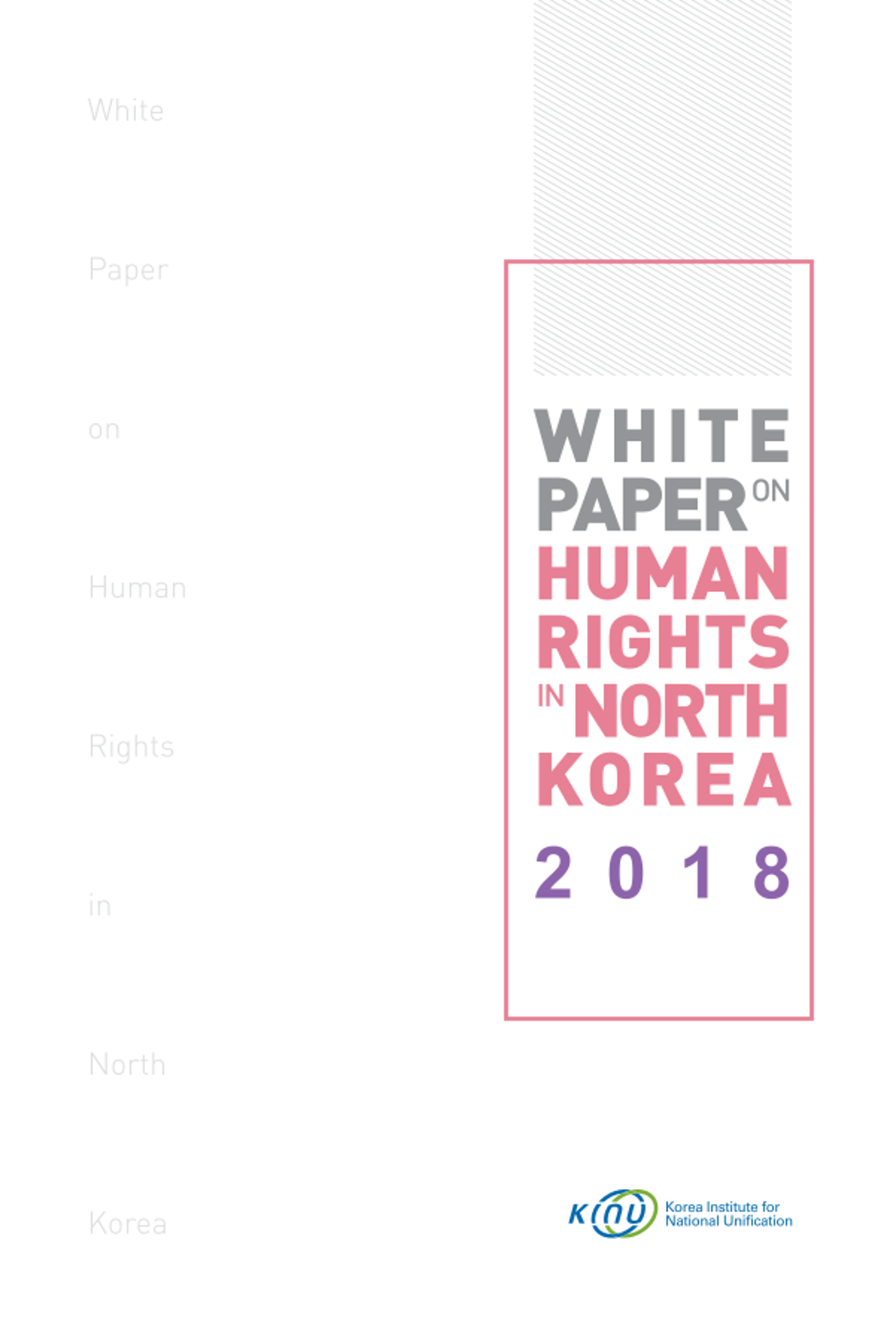
연구원발간물
White Paper on Human Rights in North Korea 2018
- 발행사항
- Seoul: Korea Institute for National Unification, 2018
- 형태사항
- 572 p.; 23 cm
- ISBN
- 978898479919-6
- 청구기호
- 000 인권18-02
소장정보
| 위치 | 등록번호 | 청구기호 / 출력 | 상태 | 반납예정일 |
|---|---|---|---|---|
이용 가능 (2) | ||||
| 1자료실 | R0008257 | 대출가능 | - | |
| 1자료실 | R0008258 | 대출가능 | - | |
이용 가능 (2)
- 등록번호
- R0008257
- 상태/반납예정일
- 대출가능
- -
- 위치/청구기호(출력)
- 1자료실
- 등록번호
- R0008258
- 상태/반납예정일
- 대출가능
- -
- 위치/청구기호(출력)
- 1자료실
책 소개
PartⅠ
Purpose and Research Methodology
The Korea Institute for National Unification has published the White Paper on Human Rights in North Korea since 1996 to raise awareness on North Korean human rights issues at home and abroad, and provide basic materials by objectively surveying and analyzing the North Korean human rights situation. The White Paper on Human Rights in North Korea 2018 incorporates information from in-depth interviews with 137 North Korean defectors who entered South Korea in 2017. These interviewees were selected with consideration to their demographic and social backgrounds. This White Paper looks into human rights situations in the North in the following parts: the Reality of Civil and Political Rights, the Reality of Economic, Social and Cultural Rights, Vulnerable Groups, and Major Issues.
Part Ⅱ
The Reality of Civil and Political Rights
The right to life is still not properly protected in North Korea. In the 2017 survey, several cases of execution in prison camps (kyohwaso) and the military have been identified. North Korea has an extensive list of crimes that are punishable by death as the regime added a unique supplementary provision called “Addendum to the Criminal Law (General Crimes).” According to the 2010 revision of the Addendum, which was obtained in 2017, North Korea has decreased the number of crimes that are subject to the death penalty, and has added lifetime correctional labor punishment to crimes that were previously only punishable by death or the death penalty with confiscation of property. This can be considered as a slight improvement in laws and regulations.
According to the 2017 survey, numerous testimonies claimed that severe physical and mental pain was inflicted on detainees at the Ministry of State Security (MSS) in the border region as they were being investigated for their attempt to escape North Korea. Public executions are still being held; however, the number of people who are going out to watch such executions is decreasing, even though the authorities continue to send notifications. In the 2017 survey, much like in 2016, there were testimonies that public executions have decreased recently, but it is unclear whether this is related to the increase of non-public executions or secret summary executions.
Forced labor by the State constitutes a serious violation of human rights; for example, imposing labor training punishment for minor crimes, re-educational labor discipline according to the Administrative Penalty Law and the People’s Security Enforcement Law, and forcing labor on people who are temporarily detained in holding centers (jipkyulso), etc. Moreover, arbitrary or illegal arrests and detentions are still carried out in North Korea, and the Criminal Procedure Law does not have any provision related to informing the suspect of the reasons for his or her arrest and the facts of the charge. It also does not include a system to review the validity of a warrant by a judge.
Severe human rights violations are still found in various detention facilities such as prison camps, labor training camps (rodongdanryundae), holding centers, and detention centers (guryujang). In particular, the level of violence and mistreatment in holding centers and MSS detention centers near border regions for repatriated North Koreans were extremely serious. In the 2017 survey, there were many cases of forced abortion in holding centers and detention centers near the border region.
The freedom of movement and residence of the North Korean people is also seriously violated: for example, travel permit system, crackdowns by zone, forced deportation, restriction of access to certain areas, etc. It seems that forced deportation of those who are involved with defection is decreasing, but this is more likely because the North Korean authorities have limited space to accommodate deported residents. Ultimately, reinforced border control is adopted as a preventive method to discourage defection.
Considering the perfunctory nature of trials and the passive roles taken on by the judge, prosecutor, lawyer, and People’s juror, it is hard to say that trials are conducted fairly. Moreover, the operation of quasi-judicial systems, including the Comrade Trial System, the Socialist Law-Abiding Life Guidance Committee, etc., raise the question of a violation of the right to be tried by a tribunal established by law. The right to have access to and legal assistance of a defense counsel does not seem to be protected. In addition, the State also violates the right to a fair trial for foreigners as the State appoints their defense counsels in a perfunctory manner, and arbitrarily limits the right to consult with consul.
Regarding the right to privacy, it seems that surveillance in border regions and social control have been reinforced since Kim Jong Un came to power. Against such backdrop, house searches to reduce smuggling and to crackdown on fugitives are conducted, and punishment after forced repatriation is reinforced. On the other hand, in the 2017 survey, some testifiers reported that they requested a warrant when faced with a house search, indicating raised awareness of some North Koreans against the regime’s control.
The right to freedom of ideology, conscience, and religion of the North Korean people is seriously violated. In particular, the Juche ideology and the Ten Principles of the Unitary Leadership System have a fundamental limitation, as they cannot stand together with the right to freedom of ideology, conscience, and religion. The concept of the freedom of ideology and conscience seems somewhat unfamiliar among the people, and practically speaking, there is lack of freedom of religion as shown from the fact that most North Koreans have never heard the word “religion.”
Regarding the freedom of expression, most defectors testified how dangerous showing political opinion in daily lives would be. In addition, the 2017 research confirmed that there were crackdowns on and punishment for recordings and mobile phones, which play an important role in introducing and circulating external information. North Korea does not guarantee the residents’ right to assembly and association. Rather, people are forced to participate in assemblies and organizations that have been approved and institutionalized by the authorities. As for elections, the principles of direct, universal,
equal, and secret ballots are not abided by and rather, North Korean authorities utilize elections as a means to reinforce and legitimize the regime.
In North Korea, discrimination by background (songbun) and class continues to function as a key system that creates inequality in diverse aspects of people’s lives. Meanwhile, the prevalent corruption and widening gap between the rich and the poor caused by marketization beget another form of discrimination. Moreover, since Kim Jong Un came to power, there have been testimonies that movement between cities and rural areas has become more strictly prohibited, and surveillance and discrimination against those ethnic Chinese and returnees has been reinforced. Therefore, existing discrimination and inequality can be interpreted as a continuous phenomenon...
목차
Summary
Part Ⅰ Purpose and Research Methodology
1 Purpose
2 Research Methodology
Part Ⅱ The Reality of Civil and Political Rights
1 Right to Life
2 Right Not to be Tortured or Receive Inhumane Treatment
3 Right Not to be Forced into Labor
4 Right to Liberty and Security of Person
5 Rights to Humane Treatment of Persons in Detention
6 Right to Freedom of Movement and Residence
7 Right to a Fair Trial
8 Right to Privacy
9 Right to Freedom of Ideology, Conscience, and Religion
10 Right to Freedom of Expression
11 Right to Freedom of Assembly and Association
12 Right to Political Participation
13 Right to Equality
Part Ⅲ The Reality of Economic, Social and Cultural Rights
1 Right to Food
2 Right to Health
3 Right to Work
4 Right to Education
5 Right to Social Security
Part Ⅳ Vulnerable Groups
1 Women
2 Children
3 Persons with Disabilities
PartⅤ Major Issues
1 Political Prison Camps
2 Corruption
3 Overseas Defectors
4 Overseas Workers
5 Separated Families, Abductees and Korean War POWs



